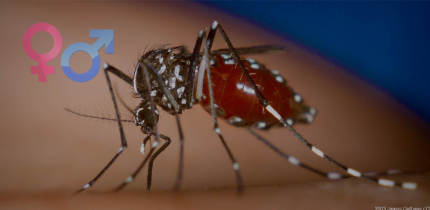Mosquitoes are well-known for biting people and transmitting numerous diseases. Surprisingly, the sex of these pests actually plays an important role in that behavior.
In discussions concerning male vs. female mosquitoes, people can differentiate between the two based on diet, size, and appearance.
ANTENNAE
Male mosquitoes have more flagella or fine hairs on their antennae, so many so that it appears noticeably bushy to the naked eye. These flagella are important to a male mosquito’s hearing, which comes in handy when the male is looking for female mosquitoes—his primary interest.
A female mosquito’s antennae are less bushy and contain several odor receptors that help her target blood sources so that she can reproduce—her primary interest.
SIZE
Male mosquitoes are generally smaller than female mosquitoes.
SOUND
Only female mosquitoes make that annoying buzzing sound.
LIFESPAN
Female mosquitoes typically live longer than male mosquitoes. Depending on the species and the conditions, a female mosquito’s average lifespan is anywhere from two to four weeks, while a male mosquito usually lives for one to two weeks.
PROXIMITY TO YOU
Because male mosquitoes have no need for human blood, they will typically avoid human contact. That’s a good thing, as mosquitoes are considered one of the deadliest animals on the planet. Those tiny, buzzing pests carry diseases such as malaria, encephalitis and yellow fever. They’re also known to carry heartworm, which can be deadly to your dog.

